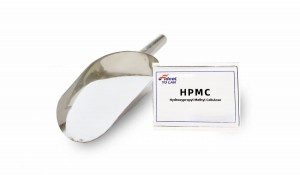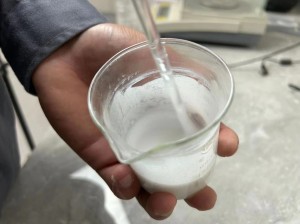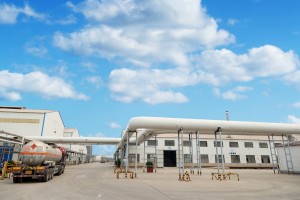Factors that affect the water retention of mortar include cellulose ether viscosity, addition amount, particle fineness and use temperature.
The greater the viscosity of the cellulose ether, the better the water retention performance. Viscosity is an important parameter for MC performance. Currently, different MC manufacturers use different methods and instruments to measure the viscosity of MC. The main methods include Haake Rotovisko, Hoppler, Ubbelohde and Brookfield. For the same product, the viscosity results measured by different methods vary greatly, and some are even exponentially different. Therefore, when comparing viscosity, it must be done between the same test method, including temperature, spindle, etc.
Generally speaking, the higher the viscosity, the better the water retention effect. However, the higher the viscosity and the higher the molecular weight of MC, its solubility will be reduced accordingly, which will have a negative impact on the strength and construction performance of the mortar. The higher the viscosity, the more obvious the thickening effect on the mortar, but the relationship is not directly proportional. The higher the viscosity, the stickier the wet mortar will be, which will manifest itself as sticky scrapers and high adhesion to the substrate during construction. But it does not help much to increase the structural strength of the wet mortar itself. During construction, the anti-sag performance is not obvious. On the contrary, some modified methylcellulose ethers with medium and low viscosity have excellent performance in improving the structural strength of wet mortar.
Post time: Nov-13-2023




